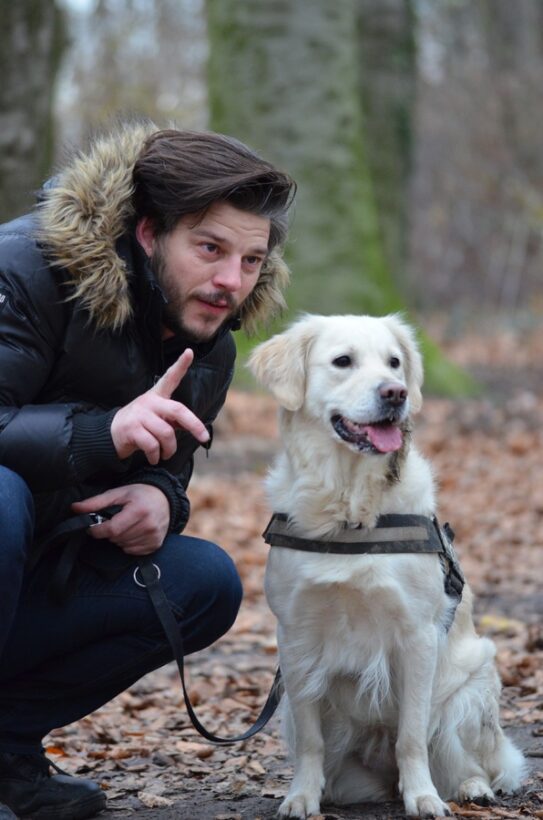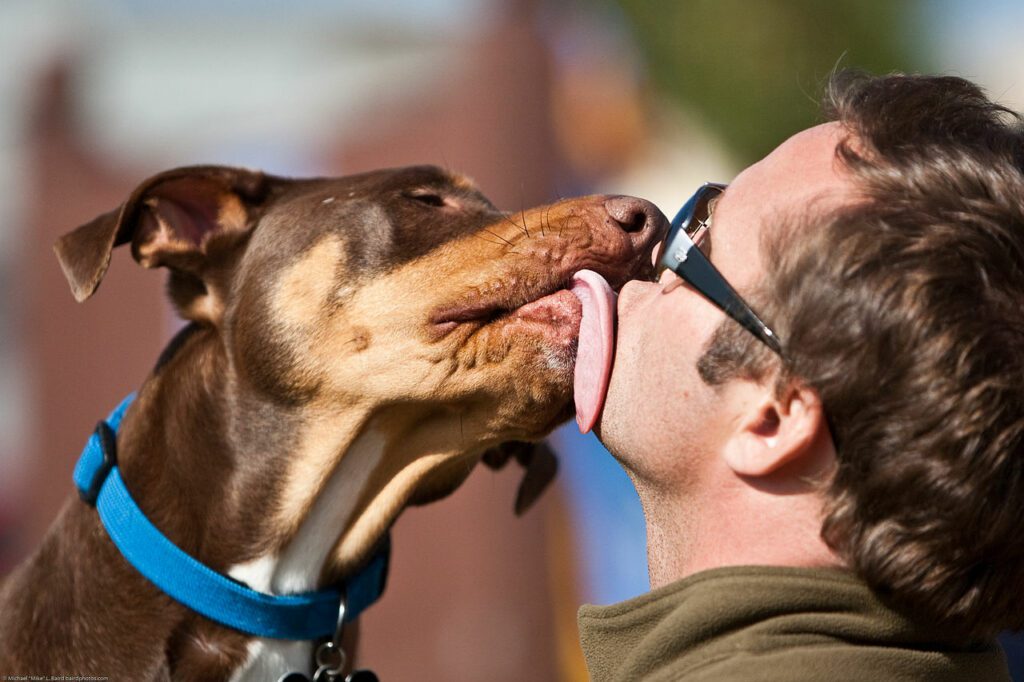Are you ready to embark on a captivating journey that combines the love of introverts with the adorable world of dogs?
Brace yourself for an enchanting exploration where hearts are touched, souls are understood, and the power of companionship takes center stage.
In this delightful read, we unveil the extraordinary reasons why introverts and dogs create a match made in heaven.
Get ready to be captivated by heartwarming tales, surprising insights, and a newfound appreciation for the profound connection between introverts and their four-legged companions.
Should Introverts Get Dogs?

Yes, introverts should consider getting dogs. Dogs can provide unwavering companionship, understanding, and support without demanding extensive social interactions.
For introverts, social interactions can sometimes be draining and overwhelming. They often seek solace and rejuvenation in solitude. This is where dogs come in as incredible allies.
Dogs are naturally intuitive creatures who can sense and adapt to their owner’s emotions and energy levels. They provide a constant source of unconditional love, companionship, and understanding, without the need for extensive social interactions.
Having a dog can create a harmonious balance for introverts. Dogs are not demanding in the same way that humans can be. They don’t require constant conversation or explanations.
Instead, they offer a comforting presence, always ready to listen and offer support without judgment. This can be immensely comforting for introverts, as they can freely express themselves without fear of being misunderstood or criticized.
Furthermore, dogs provide a sense of structure and routine in an introvert’s life. They rely on regular feeding, exercise, and care, which can be beneficial for introverts who thrive on predictable schedules.
The responsibility of taking care of a dog can give introverts a sense of purpose and fulfillment, as they have a meaningful role to play in their furry friend’s life.
What Breed of Dogs Is Best For Introverts

Basset Hound: Calm and Laid-Back Nature
Basset Hounds are known for their calm and laid-back nature. They are typically gentle, affectionate, and low-energy dogs.
Their relaxed demeanor makes them great companions for introverts who prefer a quieter and more relaxed environment.
Cavalier King Charles Spaniel: Affectionate and Eager to Please
Cavalier King Charles Spaniels are often described as affectionate, gentle, and eager to please. They form strong bonds with their owners and thrive on human companionship.
Their loving and cuddly nature can provide comfort and companionship to introverts who appreciate close connections with their pets.
Greyhound: Mellow and Low-Key
Despite their racing history, Greyhounds are surprisingly mellow and low-key dogs. They have a calm demeanor and are content with lounging around the house.
Their quiet and gentle nature can be appealing to introverts seeking a serene and undemanding companion.
Shiba Inu: Independent and Loyal
Shiba Inus are known for their independent and self-reliant nature. They are not overly demanding and prefer a strong bond with their owners.
Their loyalty and quiet demeanor make them good companions for introverts who value a more independent yet devoted relationship.
Bernese Mountain Dog: Gentle and Calm
Bernese Mountain Dogs are known for their gentle and calm temperament. They are typically friendly, and patient, and enjoy being around their family members.
Their relaxed nature and easygoing personality can provide a comforting presence for introverts seeking a peaceful companion.
Newfoundland: Gentle Giant and Nurturing
Newfoundlands are renowned for their gentle and nurturing nature. Despite their large size, they are known for their calm and patient disposition.
They are often described as sweet, loyal, and great with children. Their gentle giant qualities can be comforting for introverts who appreciate a loving and protective presence.
Corgi: Intelligent and Affectionate
Corgis are intelligent and affectionate dogs. They are known for their loyalty, adaptability, and playful nature.
Despite their lively energy, they form strong bonds with their owners and are attentive to their needs. Their intelligence and affection can make them delightful companions for introverts seeking a smart and loving canine friend.
Do Dogs Prefer Quiet People?
No, dogs do not have a preference for quiet people over others. Dogs can form strong bonds with individuals of all personality types, including both quiet and outgoing individuals.
However, dogs don’t necessarily have a preference for quiet people over outgoing individuals. Dogs have their own unique personalities and preferences, just like humans do. While some dogs may be more inclined towards calm and quiet environments, others may thrive in more active and energetic households.
What dogs typically respond to and appreciate are consistency, patience, and a loving environment. Dogs are highly perceptive creatures that can pick up on their owner’s emotions and energy levels. They often form strong bonds with their owners based on trust, care, and positive interactions.
Introverts, by nature, tend to exhibit more calm and relaxed energy, which can be appealing to some dogs. Dogs can often sense when their owners are stressed or anxious, and they may respond by providing comfort and companionship. Introverts often provide a peaceful and stable environment that dogs can find comforting.
However, it’s important to note that dogs can also adapt and respond positively to a variety of personalities and lifestyles. They can form deep connections with outgoing and extroverted individuals as well. What matters most to dogs is the love, attention, and care they receive from their owners, regardless of their personality type.
Are Dogs or Cats Better For Introverts?
The choice between dogs and cats for introverts ultimately depends on personal preferences and individual circumstances.
Both dogs and cats can bring joy, companionship, and comfort to introverted individuals.
Here are some considerations to help you make a decision:
Dogs:
- Companionship: Dogs are often highly social animals and can provide constant companionship. They thrive on human interaction and are usually eager to please their owners, which can be fulfilling for introverts seeking a close bond.
- Exercise and outdoor activities: Dogs require regular exercise and walks, which can motivate introverts to spend time outdoors, explore new places, and potentially meet other dog owners.
- Structure and routine: Dogs thrive on routine and can provide a sense of structure and responsibility in an introvert’s life, which can be comforting and fulfilling.
- Training and socialization: Dogs generally require more training and socialization than cats, which can be a positive experience for introverts who are willing to invest time and effort into building a well-behaved and well-adjusted canine companion.
Cats:
- Independence: Cats are known for their independent nature, which can be appealing to introverts who appreciate a more low-maintenance pet. Cats are generally self-sufficient and require less attention and interaction than dogs.
- Quiet companionship: Cats are often content to relax and spend time quietly near their owners, providing a calming presence without demanding constant engagement or physical activity.
- Lower energy levels: Cats are generally less active than dogs and require less physical exercise. This can be a good fit for introverts who prefer a more relaxed and low-energy environment.
- Smaller space requirements: Cats are usually more adaptable to smaller living spaces, making them suitable for introverts living in apartments or homes with limited space.
Ultimately, the choice between dogs and cats for introverts comes down to personal preference, lifestyle, and the specific needs and characteristics of the individual.
It’s important to consider factors such as desired level of companionship, energy levels, space limitations, and willingness to invest time and effort into training and socialization.
Can An Introvert Be a Dog Person?
Absolutely! Introverts can absolutely be dog people. Being an introvert simply means that one tends to find solitude and inner reflection energizing, while social interactions may be more draining. It does not dictate one’s ability to form deep connections with animals, including dogs.
In fact, many introverts find great solace and companionship in the company of dogs. Dogs are known for their ability to provide unconditional love, loyalty, and a non-judgmental presence.
They can be a source of comfort and understanding for introverts, as they don’t require extensive social interaction or conversation. Dogs are content to be by their owner’s side, offering companionship without the need for constant engagement.
Introverts often appreciate the deep emotional connections they can develop with their pets, and dogs are no exception. Dogs can be excellent listeners, sources of support, and a consistent presence in an introvert’s life. They offer a sense of security and love, providing a source of comfort during times of solitude.
Furthermore, dogs can help introverts engage with the outside world at their own pace. Walking a dog can serve as a gentle nudge to spend time outdoors, allowing introverts to enjoy the benefits of fresh air and potentially meet other dog owners along the way.
Dogs can act as social catalysts, easing the burden of initiating conversations and providing common ground for connections with like-minded individuals.
Are Introverts Better With Animals?
Yes, introverts can often have a natural affinity for animals. Their qualities such as empathy, sensitivity, observation skills, patience, calmness, and appreciation for solitude can contribute to successful and meaningful relationships with animals.
However, it is important to note that individuals of any personality type can develop strong connections with animals based on their love, care, and commitment. The ability to connect with animals is not exclusive to introverts.
In Conclusion
As we conclude this captivating journey, it becomes abundantly clear that introverts and dogs share an unbreakable bond that transcends words.
The stories we’ve encountered along the way have showcased the transformative power of canine companionship for introverts, offering solace, understanding, and unwavering support.
From the comfort of quiet moments to the joy of shared adventures, the synergy between introverts and dogs is truly extraordinary.
So, whether you’re an introvert seeking a loyal confidant or simply an enthusiast captivated by the magic of this connection, we invite you to embrace the beauty that awaits you.
Open your heart to the incredible world where introverts and dogs create a symphony of love, acceptance, and lifelong friendship. The journey begins here, and the possibilities are endless.





Leave a Reply